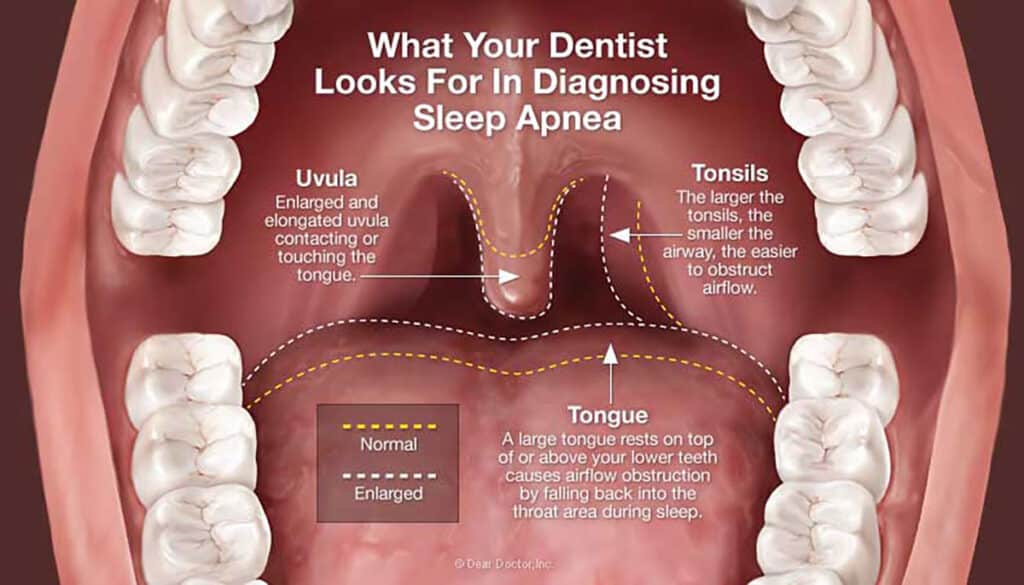Sleep Apnea
- Home
- Services
- Oral Surgery
- Sleep Apnea
Sleep apnea, specifically Obstructive Sleep Apnea (OSA), is a sleep disorder characterized by low oxygen levels in the blood, disrupting the individual’s sleep. In OSA, the tongue is pulled toward the back of the throat during sleep, obstructing the upper airway and causing a cessation of airflow. The resulting drop in oxygen levels prompts the individual to partially wake up and clear the airway, restoring normal airflow. However, this recurrent disruption prevents a restful night’s sleep.
Consistently low oxygen levels can have severe consequences for the cardiovascular system. Individuals with sleep apnea may experience difficulties concentrating during the day, constant daytime sleepiness, and even an increased risk of depression.
Upper Airway Resistance Syndrome (UARS) is related to a milder form of airway blockage with similar symptoms. Recognizing and understanding these sleep disorders is crucial for initiating effective treatment. However, diagnosis can be challenging, as many individuals with sleep disorders may be unaware of their condition due to the nature of the disorder occurring during sleep.
Treating Sleep Apnea
Consulting with a doctor, particularly maxillofacial and oral surgeons, is crucial in exploring potential treatment options for sleep disorders like sleep apnea. During the consultation, your doctor will thoroughly examine your maxillofacial area and gather information about your medical history. Cephalometric analysis or skull X-rays may be performed to assess the level of airway blockage. In some cases, a nasopharyngeal examination using a fibre-optic camera may also be conducted.
Overnight monitoring at a sleep clinic may be recommended for a more comprehensive understanding of your sleep-related issues. This involves monitoring your sleep patterns and behaviours to accurately diagnose and determine the most appropriate treatment for your condition. The collaborative efforts of medical professionals, diagnostic tools, and sleep studies are essential in developing an effective treatment plan tailored to your individual needs.

There are a few available treatment choices:
Non-surgical options to treat sleep apnea
- CPAP machine
- Oral Appliance Therapy (OAT)
- Lifestyle changes – lose weight, smoking cessation, sleep training
Surgical options to treat sleep apnea
- Tonsillectomy and/or Adenoidectomy
- Uvulopalatopharyngoplasty (UPPP)
- Maxillomandibular Advancement (MMA)
- Nasal Surgery
- Genioglossus Advancement (GA)
- Tracheostomy
